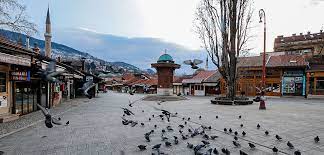Author: Abdullah Keşvelioğlu
Affiliation: Assistant Researcher at TRT World Research Centre
Organization/Publisher: TRT World Research Centre
Date/Place: May, 2020/Istanbul
Type of Literature: Info pack
Word Count: 3734
Keywords: Western Balkans, Covid-19, Political and Economic Impact
Brief:
Abdullah Keşvelioğlu analyzes in his info pack the political and economic situations and measures in the six countries of the Western Balkans: Bosnia and Herzegovina, Serbia, Kosovo, North Macedonia, Albania, and Montenegro. The author states that the weak political and economic situation in this region have made it more vulnerable to Covid-19. Important political developments include the postponement of elections in Serbia and North Macedonia, and the confrontation with a vote of no confidence of the Albin Kurti government in Kosovo. Political tensions in Montenegro, Albania, and Serbia due to the accusation that the government is using the pandemic for its own political gains, were the main cases observed during the pandemic. Contrary to the above-mentioned countries, Bosnia and Herzegovina sets a positive example as unity and ethnic cooperation among Bosniak, Croat, and Serb entities were observed, which is a rare moment considering the country’s past. Regarding economy, the author states that all countries except Albania are bearing down on a recession in 2020. To tackle this issue, governments have asked the World Bank, the International Monetary Fund (IMF) and the EU for financial aid. The author further mentions that Western Balkan countries have taken important measures, such as declaring a state of emergency, closing borders, schools, and businesses etc., to stop the spread of the virus. Keşvelioğlu concludes these measures as justified due to the lack of a sufficient health infrastructure to deal with the pandemic. He identifies that the region received medical equipment from Turkey, Russia, China, and lastly the EU, quoting Serbian President Alexander Vucic who said that European solidarity “was a fairy tale” and calling out the EU for “not showing solidarity” in responding to the pandemic.
By: Dilek Yücel-Kamadan, CIGA Research Associate




